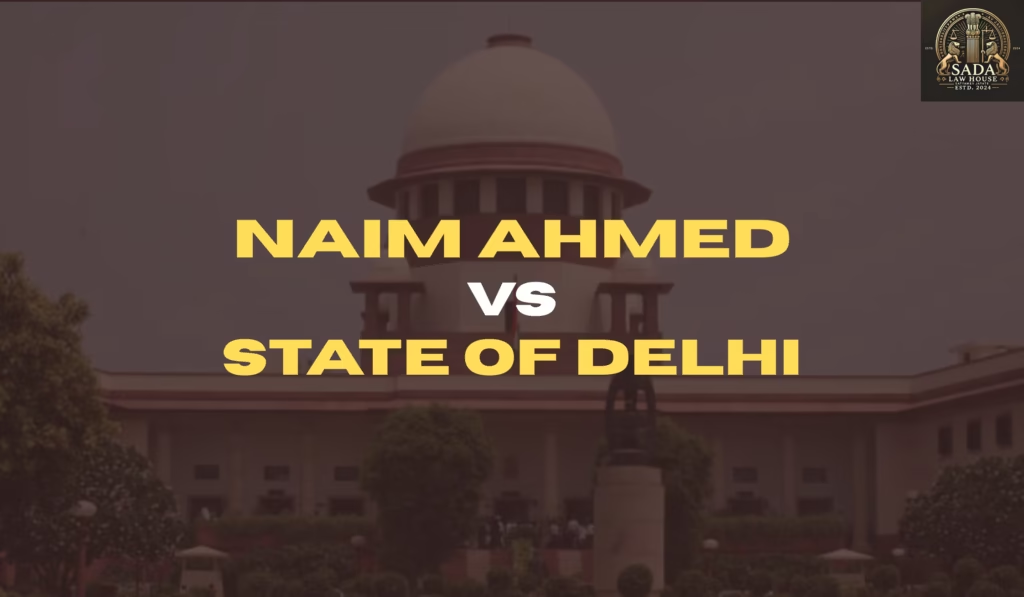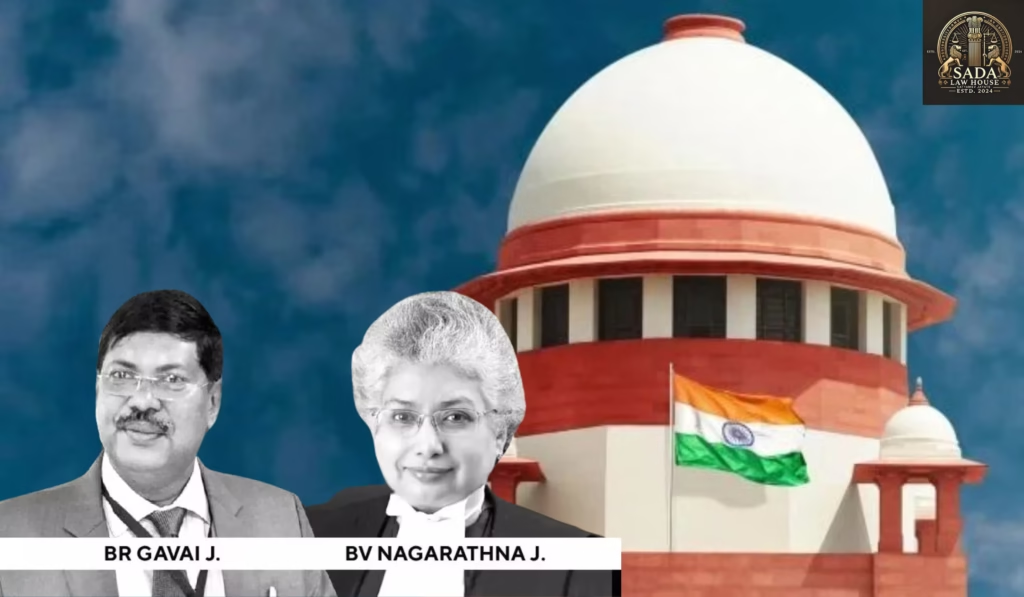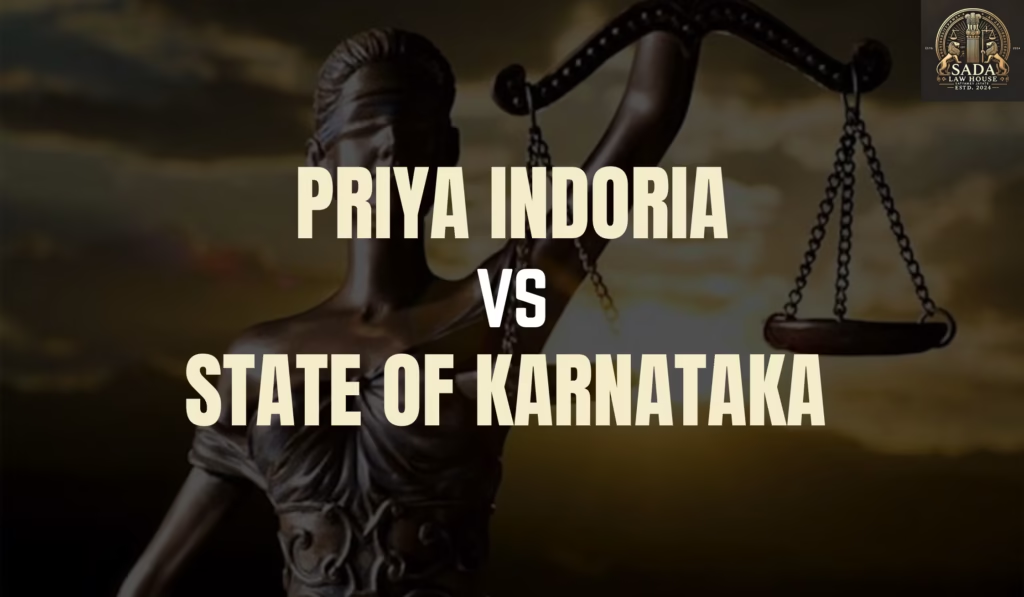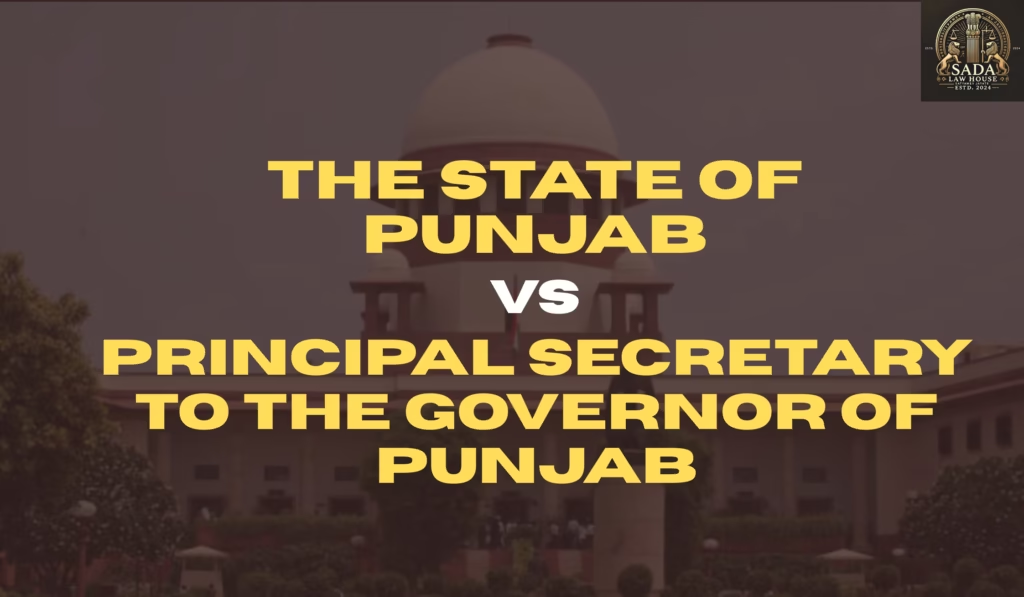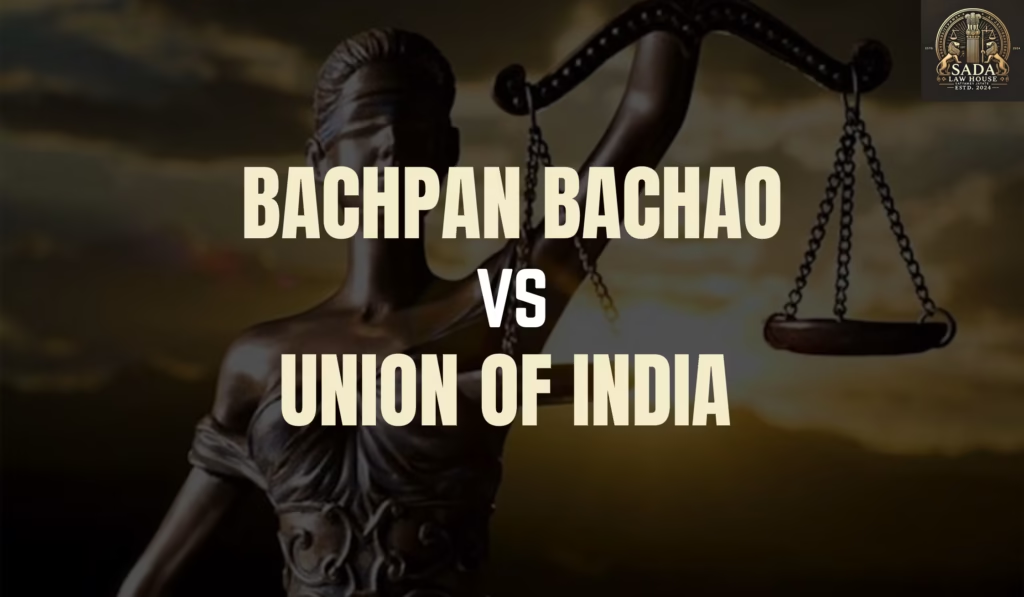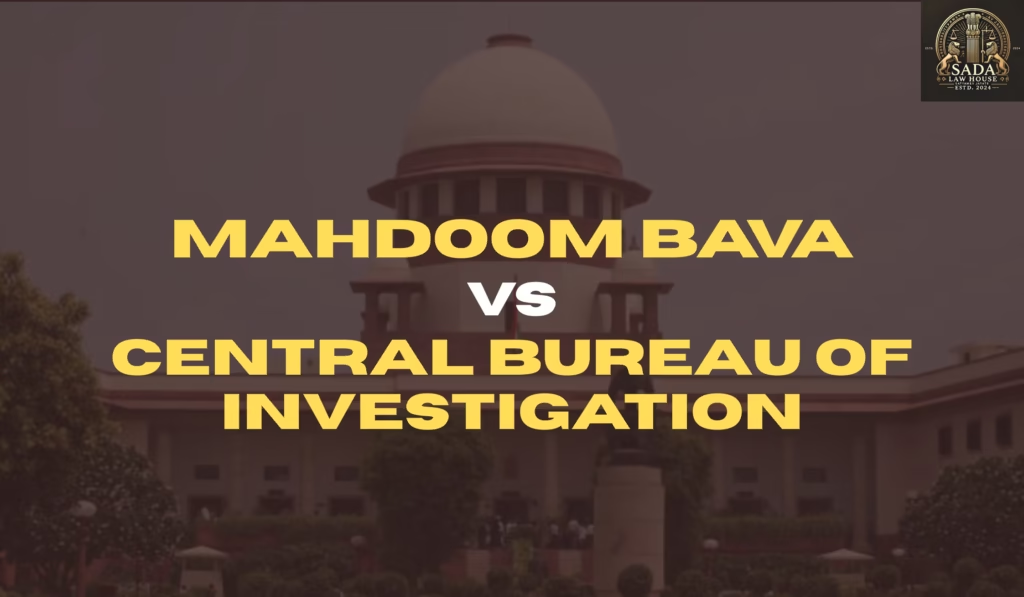Naim Ahmed v. State of Delhi: Supreme Court Ruling on Consent and False Rape Allegations under IPC Section 376
Trending Today Naim Ahmed v. State of Delhi: Supreme Court Ruling on Consent and False Rape Allegations under IPC Section 376 Supreme Court Strikes Down Assam’s Rural Health Act: Only MBBS Holders Can Practice Modern Medicine US Court Convicts 6 NRIs in $15 Million Hawala Scam Tied to Dark Web and Money Laundering Supreme Court Ruling: Land Ownership Requires Valid Title, Not Just Registration K.T. Rama Rao Under Fresh Scrutiny in ₹55 Crore Formula E Probe: ACB Investigates Public-Private Deal Irregularities Legal Action in Kedarnath Helicopter Crash: Aviation Safety Under Scrutiny After Tragedy INTERNSHIP OPPORTUNITY AT JLS LAW LEGAL JOB OPPORTUNITY AT JUSPAY, BENGALURU LEGAL JOB OPPORTUNITY AT GOODYEAR, DELHI LEGAL JOB OPPORTUNITY AT BATA, GURGAON Naim Ahmed v. State of Delhi: Supreme Court Ruling on Consent and False Rape Allegations under IPC Section 376 NISHA KUMARI 18 June 2025 Explore the landmark Supreme Court judgment in Naim Ahmed v. State of Delhi (2023), addressing false rape allegations, the role of consent, and interpretation of IPC Section 376 in the Indian legal system. Introduction The Supreme Court of India, in the case of Naim Ahmed v. State (NCT of Delhi) decided on January 30, 2023, provided critical clarity on the interpretation of Section 376 of the Indian Penal Code (IPC). This landmark ruling reinforces the legal significance of consent in rape cases and emphasizes that not all rape allegations are genuine. It also underlines the responsibility of courts to distinguish between false promises of marriage and actual coercion under criminal law. Case Overview Case Title: Naim Ahmed v. State of Delhi Date of Judgment: 30 January 2023 Citation: [2023] 1 SCR 1061 Court: Supreme Court of India Judges: Justice Bela M. Trivedi and Justice Ajay Rastogi Facts of the Case The prosecutrix, a married woman with three children, alleged that the accused, Naim Ahmed, enticed her into a relationship under the false promise of marriage. She claimed he misrepresented himself as unmarried and lured her with the prospect of a better life, leading to a sexual relationship that resulted in pregnancy in 2011. Their relationship continued over several years. Despite repeated reassurances, no marriage took place. Eventually, the complainant filed a complaint under Section 376 IPC on March 21, 2015, with the Bindapur Police Station in Delhi. Key Legal Issues 1. Applicability of Section 376 IPC Was the accused liable for rape under Section 376 of the IPC based on the prosecutrix’s claims? 2. Validity of Consent Can the accused invoke consent as a legal defense, especially when it was allegedly obtained through deceit? Supreme Court Judgment Highlights The Supreme Court made the following observations: The prosecutrix was mature and aware of the consequences, given her life experience. The long-term relationship did not support the argument that sexual acts occurred solely under deceit or coercion. Refusal to marry did not retroactively nullify earlier consent. Even under a mistaken belief, the consent did not meet the threshold of rape under Section 375 IPC. Final Verdict The Court acquitted Naim Ahmed of rape charges but upheld the compensation order for the child, recognizing his responsibility. Legal Significance and Implications This judgment highlights: The danger of false rape allegations, which can undermine genuine cases. The importance of free and informed consent in determining criminal liability. The burden of proof lies with the prosecution, and courts must assess evidence with precision. Under Section 114A of the Indian Evidence Act, courts may presume lack of consent in specific cases, but must do so judiciously. Conclusion The Naim Ahmed v. State of Delhi case is a noteworthy precedent in interpreting rape laws in India, especially concerning false promises of marriage. It reinforces that not every failed relationship constitutes rape, and the justice system must balance the rights of both victims and the accused. This judgment upholds the principles of due process, judicial integrity, and the presumption of innocence, all essential components of a fair and robust legal system. Leave a Reply Cancel Reply Logged in as Sada Law. Edit your profile. Log out? Required fields are marked * Message* Case Laws Naim Ahmed v. State of Delhi: Supreme Court Ruling on Consent and False Rape Allegations under IPC Section 376 Sada Law • June 18, 2025 • Case law • No Comments Supreme Court Strikes Down Assam’s Rural Health Act: Only MBBS Holders Can Practice Modern Medicine Sada Law • June 18, 2025 • Case law • No Comments Supreme Court Affirms Right to Anticipatory Bail Across States in Matrimonial Disputes: Priya Indoria v. State of Karnataka (2023) Sada Law • June 13, 2025 • Case law • No Comments 1 2 3 … 5 Next »

